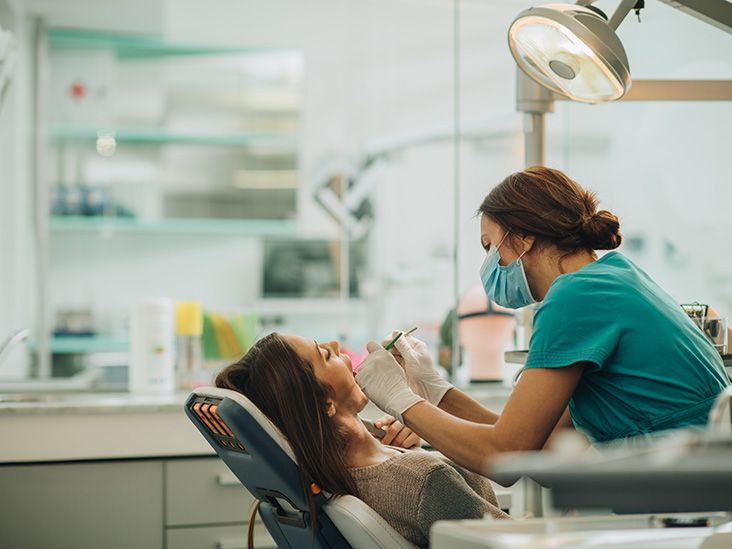Usual Inquiries Concerning Dental Veneers Addressed
Oral veneers have actually come to be an increasingly in-demand choice for those wanting to enhance their smiles, yet numerous individuals continue to be unpredictable regarding different facets of their usage. Secret questions often emerge regarding the application procedure, longevity, and possible risks related to these cosmetic enhancements. Moreover, the distinction between porcelain and composite veneers can dramatically affect one's choice. As we explore these typical questions, it becomes necessary to think about not just the benefits however likewise the ramifications of choosing for oral veneers in pursuit of a more confident look. What elements should one consider prior to making such a choice?
What Are Oral Veneers?
Dental veneers are thin, tailor-made coverings crafted from porcelain or composite material that are created to cover the front surface area of teeth. These dental prosthetics serve both practical and visual purposes, giving a remedy for various dental imperfections, including staining, chips, voids, and misalignment. By adhering to the teeth, veneers can substantially improve the overall appearance of a smile, producing a much more appealing and consistent appearance.
Porcelain veneers are specifically preferred for their natural translucency and tarnish resistance, making them an ideal choice for people looking for lasting results. In contrast, composite material veneers are generally cheaper and can be used in a solitary go to, but they might not supply the same sturdiness as porcelain choices.
The decision to select oral veneers commonly comes from a need for visual enhancement, however clients ought to additionally take into consideration factors such as the long life of the product, maintenance needs, and the prospective requirement for tooth reduction (Porcelain Veneers Washington DC). Inevitably, dental veneers represent a flexible and effective option for attaining a radiant smile, catering to specific aesthetic requirements while promoting confidence and self-confidence
How Are Veneers Applied?
The application procedure for veneers calls for cautious planning and accuracy to ensure optimum outcomes. The procedure typically starts with an extensive appointment, where the dentist reviews the person's oral health, talks about preferred end results, and determines the ideal kind of veneers, whether porcelain or composite resin.
Once the therapy strategy is established, the dentist prepares the teeth by getting rid of a thin layer of enamel, generally about 0.5 mm to 1 mm, to accommodate the veneer. This step is crucial as it makes sure a proper fit and avoids the veneers from showing up cumbersome - Low Cost Veneers. After preparation, perceptions of the teeth are taken to create custom-made veneers that match the individual's distinct oral structure and visual choices
While the permanent veneers are being fabricated in a dental research laboratory, short-term veneers may be positioned to shield the ready teeth. When the long-term veneers are all set, the dentist will meticulously bond them to the teeth utilizing a strong oral adhesive. Final changes are made to make sure proper positioning and bite, adhered to by brightening for an all-natural look. The process culminates in a follow-up appointment to check the veneers' fit and the person's fulfillment with their brand-new smile.
What Are the Perks?
:max_bytes(150000):strip_icc()/Dental-Care-Diabetes-Heart-Disease-GettyImages-904657730-2000-d106253af9b54ceba2bad7031cdfc657.jpg)
Furthermore, veneers are understood for their sturdiness and resistance to tarnishing compared to all-natural teeth. Made from high-grade materials such as porcelain or composite resin, they can preserve their look for many years with proper care. This longevity makes them a sensible investment in one's dental look.
Along with aesthetic enhancements, veneers look at here now can also add to improved oral health and wellness. By covering harmed or deteriorated teeth, they can supply added assistance and security, helping to prevent more decay or damage. This safety facet can minimize the demand for extra extensive oral procedures in the future.

For How Long Do They Last?
With proper treatment and upkeep, dental veneers can last anywhere from 10 to 15 years, making them a long-lasting solution for boosting one's smile. The longevity of veneers greatly relies on the material utilized, the high quality of the preliminary placement, and the individual's adherence to oral he has a good point health methods.
Porcelain veneers are known for their sturdiness and resistance to staining, usually lasting closer to the 15-year mark when taken care of suitably. Composite veneers, while extra economical, may need replacement quicker, often within 5 to 10 years as a result of their vulnerability to put on and discoloration.

Additionally, putting on a mouthguard during sports or nighttime can provide additional defense. Ultimately, while veneers offer a substantial visual improvement, their long life is substantially affected by the commitment to appropriate oral care and normal consultations with an oral professional.
Are There Any Type Of Dangers?
Thinking about the transformative effects of oral veneers, it is essential to recognize the possible risks connected with their application. While veneers can enhance the look of teeth, the treatment entails the removal of a thin layer of enamel, which can raise tooth level of sensitivity and susceptability to decay.
One considerable threat is the opportunity of incorrect positioning or suitable, resulting in pain, bite misalignment, or also damages to the underlying tooth structure. Additionally, if the veneers are not maintained correctly, they can end up being stained or broken over time, requiring substitute.
Individuals may additionally experience allergies to the materials used in the veneers, especially if they have level of sensitivities to certain oral compounds. While veneers are sturdy, they are not unbreakable; excessive pressure from clenching or grinding can lead to fractures.
It is crucial for clients to speak with a certified oral professional to assess their private dangers and to adhere to aftercare guidelines carefully. By understanding these risks, patients can make enlightened choices regarding their dental veneer therapy and guarantee the long life and success of their enhancements.
Final Thought
In summary, oral veneers stand for an important cosmetic option for boosting smiles, with considerations regarding their application, advantages, durability, and linked dangers. Eventually, notified decision-making regarding oral veneers can lead to adequate aesthetic end results and enhanced oral health and wellness.
Oral veneers are slim, customized coverings crafted from porcelain or composite material that are made to cover the front surface of teeth. After prep work, impressions of the teeth are taken to produce customized veneers that match the client's special dental structure and visual choices.
While the irreversible veneers are being fabricated in an oral lab, short-term veneers may be placed to protect the ready teeth. Once the long-term veneers are prepared, the dentist will very carefully bond them to the teeth using a solid oral adhesive. Inevitably, notified decision-making relating to oral veneers can lead to sufficient visual results and boosted oral health.